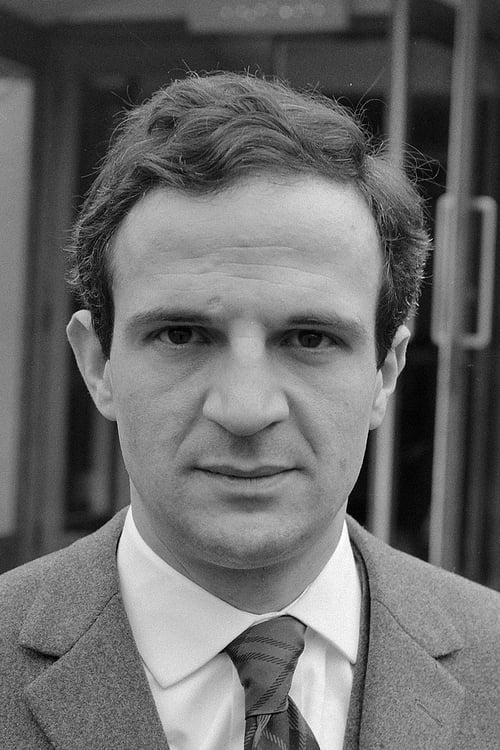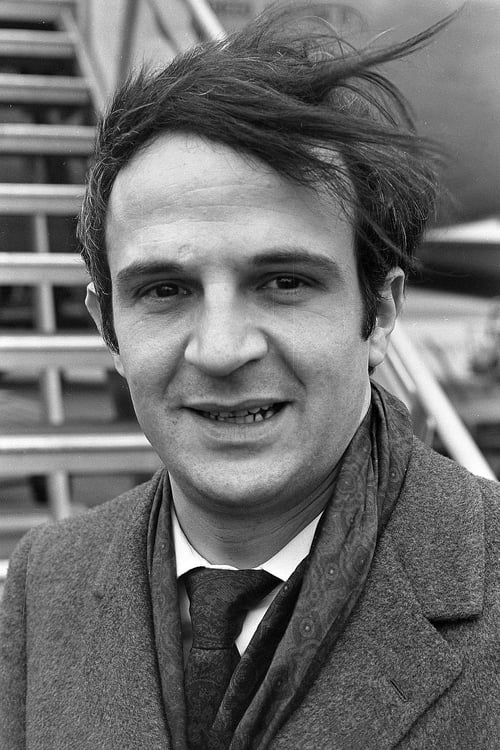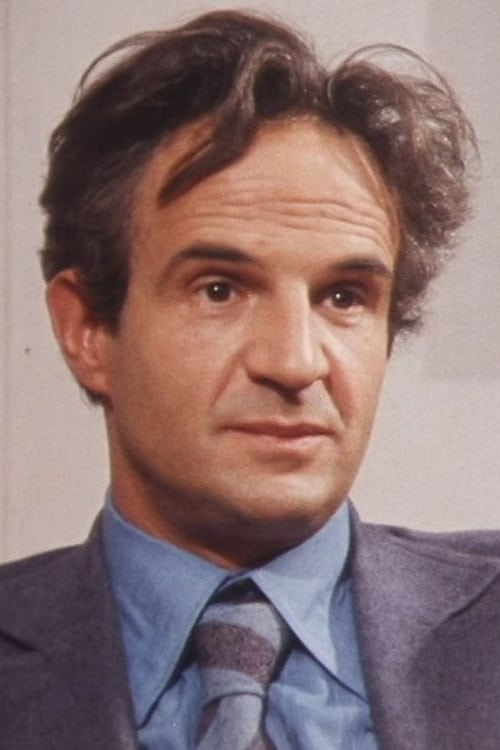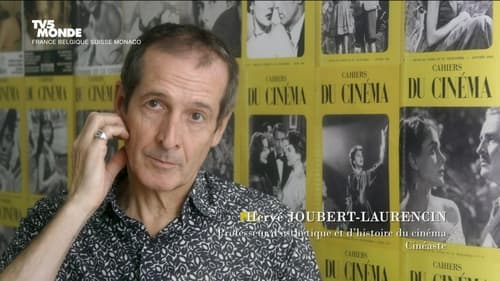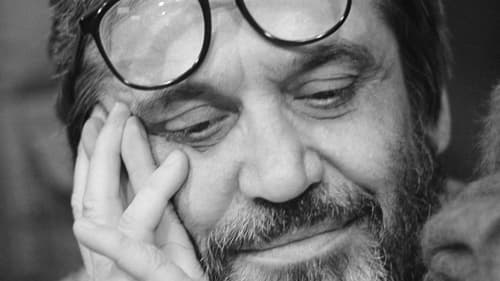
Self (archive footage)
In just ten films, Maurice Pialat painfully rose to the top of the cinema, draining into his legend a mad demand for truth as much as memorable fury to achieve it. With "L'Enfance nue", his first feature film at the age of 43, the filmmaker immediately made his mark, this "art of making things authentic", according to Chabrol. But throughout an unclassifiable filmography in the form of an autobiography, from a break-up to his fatherhood in wonder, through the agony of his mother, the filmmaker does not get rid of the feeling of being misunderstood, despite international recognition.

Self - Filmmaker (archive footage)
Paris, Rue Beautreillis, July 3, 1971. The corpse of rock star Jim Morrison is found in a bathtub, in the apartment of his girlfriend Pamela Courson. The chronicle of the last months of the life of the poet, singer and charismatic leader of the American band The Doors, one of the most influential in the history of rock.

Self (archive footage)
Born in Berlin in 1896, Lotte Eisner became famous for her passionate involvement in the world of both German and French cinema. In 1936, together with Henri Langlois, she founded the Cinémathèque Française with the goal of saving from destruction films, costumes, sets, posters, and other treasures of the 7th Art. A Jew exiled in Paris, she became a pillar of the capital's cultural scene, where she promoted German cinema.
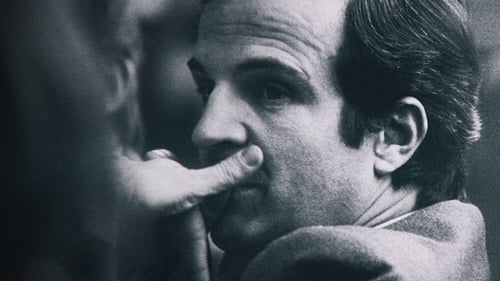
Self
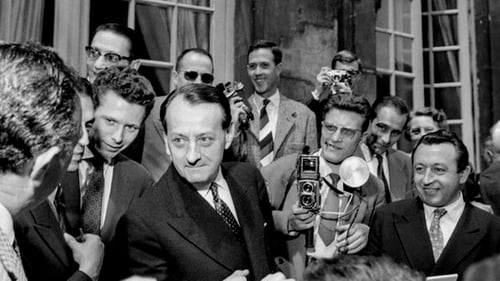
Self - Filmmaker (archive footage)
Writer, journalist, explorer, filmmaker, communist militant, freedom fighter. Truths and lies. A plot twist. Politician. General De Gaulle's shadow. Overwhelmed by the weight of power. The numerous exploits of André Malraux (1901-1976).

Self (archive footage)
A portray of French actress Françoise Dorléac
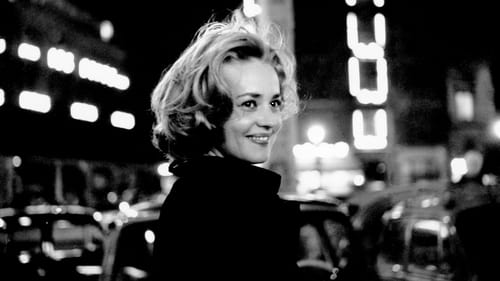
Self - Filmmaker (archive footage)
An account of the life of actress Jeanne Moreau (1928-2017), a true icon of the New Wave and one of the most idolized French movie stars.

Self - Filmmaker (archive footage)
The gripping story of legendary American actor John Travolta: his rise to stardom in the 1970s; his agonizing fall in disgrace in the 1980s; and his stunning artistic rebirth in the 1990s.
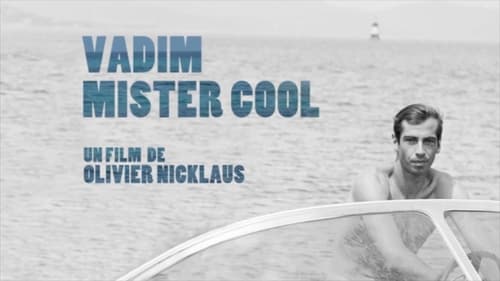
Self (archive footage)
As a poster boy for hedonism, his whole life was one big party. A journalist, filmmaker, director, producer, actor, novelist, ladies' man and prolific father... Roger Vladimir Plémiannikov, a.k.a. Roger Vadim, tried everything until his death in 2000. Portrait of a man at the cutting edge of fashion and trends.

Self (archive footage)
An inquiry into two of the most influencial French filmakers friendship and feud.
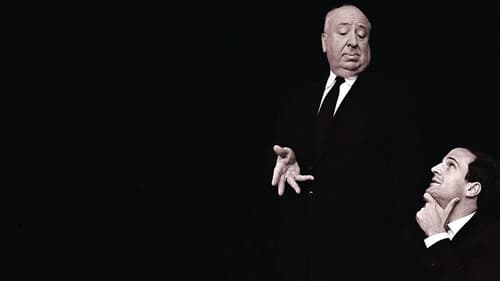
Self (archive footage) (uncredited)
Filmmakers discuss the legacy of Alfred Hitchcock and the book “Hitchcock/Truffaut” (“Le cinéma selon Hitchcock”), written by François Truffaut and published in 1966.
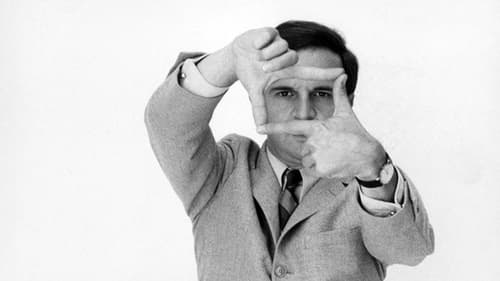
Self (archive footage)
This portrait of the world-famous French director based on his personal correspondance reveals the little known insurgent side of his personnality. Featuring interviews with close collaborators, friends and family, this definitive documentary tells his intimate story, from the streets of Paris to the filmmaking accolades and high profile marriages at the height of his career.

Self (archive footage)
Film historian/professor at UCLA Janet Bergstrom and Positif journalist N.T. Bihn discuss To Be or Not to Be and Ernst Lubitsch's career and legacy. The featurette also contains archival footage with Francois Truffaut and Claude Berri.

Idea
Adaptation of Honoré de Balzac's "The Skin of Sorrow" or "The Wild Ass's Skin" (1831), said to be the last novel read by Sigmund Freud before his death. While reading it, he would have said: "This is the only book I needed".

Self (archive footage)
An in-depth analysis of the relationship between New Wave pioneers François Truffaut and Jean-Luc Godard, as seen through rare archival footage, interviews, and film excerpts — written and narrated by former Cahiers du Cinéma editor Antoine de Baecque.
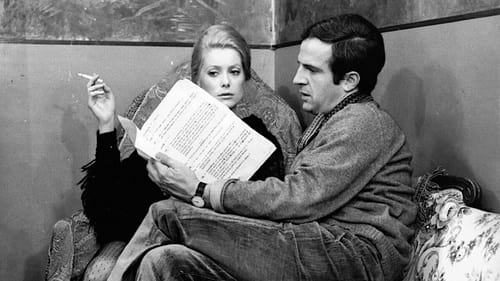
Self (archive footage)
Catherine Deneuve couldn’t care less about being a celebrity, but fame made her an icon long ago and she occupies a special place in our imagination. The star is not one to let others get too close, but when she gives you her confidence, she keeps her word. If Deneuve’s career covers a half-century of cinema, it also bears witness to the force of a generation that experienced the deepest transformation of mores. This portrait reflects her entirely. The story of a mystery and an adventure.

Self (archive footage)
Documentary about the making of Alfred Hitchcock's 1946 film "Notorious."

Self (archive footage)

Self (archive footage)
Documentary about François Truffaut who is one of the most respected directors in the history of cinema.

Self (archive footage)
Television documentary about the making of Roberto Rossellini's 1945 film "Rome, Open City".

Self (audio archival footage)
Written and directed by Hitchcock historian Noël Simsolo, this 2004 French television documentary explores the earliest years of Alfred Hitchcock's film career, beginning with his success in the production of The Lodger (1926) and following the filmmaker through his transition to sound films and his early thrillers.

Self

Self (archive footage)
When Francois Truffaut approached Alfred Hitchcock in 1962 with the idea of having a long conversation with him about his work and publishing this in book form, he didn't imagine that more than four years would pass before Le Cinéma selon Hitchcock finally appeared in 1966. Not only in France but all over the world, Truffaut's Hitchcock interview developed over the years into a standard bible of film literature. In 1983, three years after Hitchcock's death, Truffaut decided to expand his by now legendary book to include a concluding chapter and have it published as the "Edition définitive". This film describes the genesis of the "Hitchbook" and throws light on the strange friendship between two completely different men. The centrepieces are the extracts from the original sound recordings of the interview with the voices of Alfred Hitchcock, Francois Truffaut, and Helen Scott – recordings which have never been heard in public before.

Self (archive footage)
Documentary about the life and works of Italian filmmaker Roberto Rossellini.

Self (archive footage)
A fascinating glimpse into Truffaut’s creative process and how his life informed his art, told from the perspectives of those who knew him best.

Self (archive footage)
A fascinating glimpse into Truffaut’s creative process and how his life informed his art, told from the perspectives of those who knew him best.

Self (archive footage)
Agnès Varda's documentary portrait of her late husband, Jacques Demy. A companion piece to her Jacquot de Nantes.

Self
A documentary about Genie, who spent the first thirteen years of her life imprisoned in her bedroom by her father, with her arms and legs immobilized.

Self (archive footage)
Documentary overview of the life of French filmmaker François Truffaut.

Self (archive footage)
An intimate window into one of the great movements in film history that brought about an evolution in the art of cinema. The documentary portrays the movement with insight on the lives and works of Jean-Luc Godard, François Truffaut and other principal players in the New Wave.
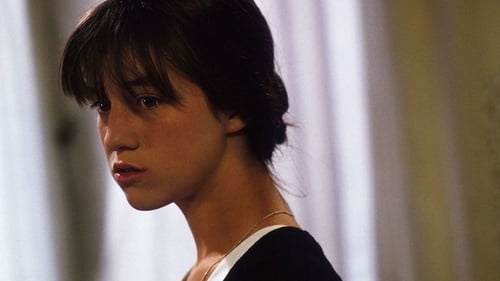
Author
In a small town in post-World-War-II France, an unhappy sixteen-year-old (Janine Castang) tries to escape her dreary situation by any means at her disposal. Three successive friends (Michel Davenne, a married lover; Raoul, a fellow thief; Mauricette Dargelos, a photographer and fellow prisoner) help her learn from her mistakes.

In Memory Of
Two angels, Damiel and Cassiel, glide through the streets of Berlin, observing the bustling population, providing invisible rays of hope to the distressed but never interacting with them. When Damiel falls in love with lonely trapeze artist Marion, the angel longs to experience life in the physical world, and finds -- with some words of wisdom from actor Peter Falk -- that it might be possible for him to take human form.
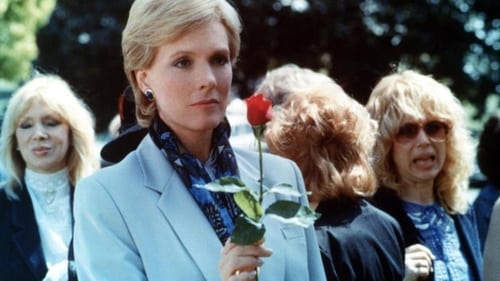
Story
A womanizing sculptor seeks help from a psychiatrist to cure him of his obsession with women.
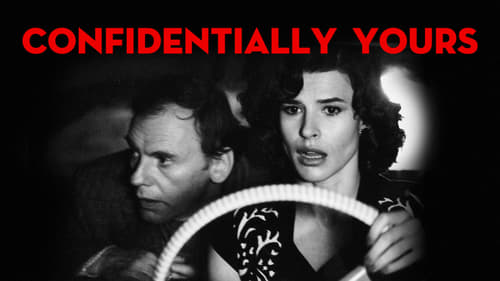
Producer
Claude Massoulier is murdered while hunting at the same place as Julien Vercel, an estate agent who knew him and whose fingerprints are found on Massoulier's car. As the police discover that Marie-Christine Vercel, Julien's wife, was Massoulier's mistress, Julien is the prime suspect. But his secretary, Barbara Becker, while not quite convinced he is innocent, defends him and leads her private investigations.

Screenplay
Claude Massoulier is murdered while hunting at the same place as Julien Vercel, an estate agent who knew him and whose fingerprints are found on Massoulier's car. As the police discover that Marie-Christine Vercel, Julien's wife, was Massoulier's mistress, Julien is the prime suspect. But his secretary, Barbara Becker, while not quite convinced he is innocent, defends him and leads her private investigations.

Director
Claude Massoulier is murdered while hunting at the same place as Julien Vercel, an estate agent who knew him and whose fingerprints are found on Massoulier's car. As the police discover that Marie-Christine Vercel, Julien's wife, was Massoulier's mistress, Julien is the prime suspect. But his secretary, Barbara Becker, while not quite convinced he is innocent, defends him and leads her private investigations.
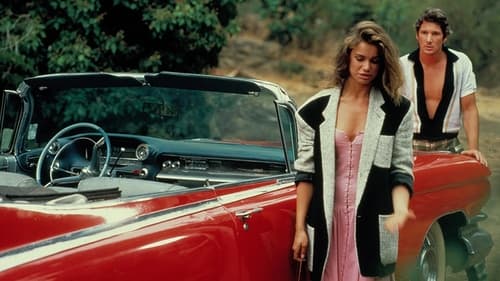
Author
Jesse has to get out of Las Vegas quickly and steals a car to drive to L.A. On the way, he shoots a police officer. When he makes it to L.A. he stays with Monica, a girl he has only known for a few days. As the film progresses, the police get closer to him, and the crimes escalate.
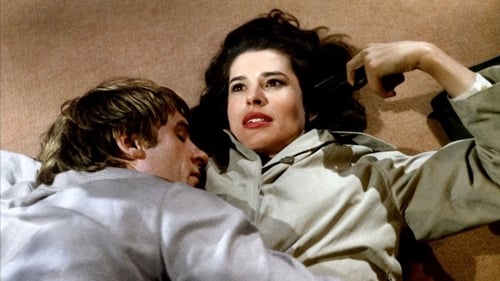
Producer
Madame Jouve, the narrator, tells the tragedy of Bernard and Mathilde. Bernard was living happily with his wife Arlette and his son Thomas. One day, a couple, Philippe and Mathilde Bauchard, moves into the next house. This is the accidental reunion of Bernard and Mathilde, who had a passionate love affair years ago. The relationship revives... A somber study of human feelings.

Screenplay
Madame Jouve, the narrator, tells the tragedy of Bernard and Mathilde. Bernard was living happily with his wife Arlette and his son Thomas. One day, a couple, Philippe and Mathilde Bauchard, moves into the next house. This is the accidental reunion of Bernard and Mathilde, who had a passionate love affair years ago. The relationship revives... A somber study of human feelings.

Director
Madame Jouve, the narrator, tells the tragedy of Bernard and Mathilde. Bernard was living happily with his wife Arlette and his son Thomas. One day, a couple, Philippe and Mathilde Bauchard, moves into the next house. This is the accidental reunion of Bernard and Mathilde, who had a passionate love affair years ago. The relationship revives... A somber study of human feelings.
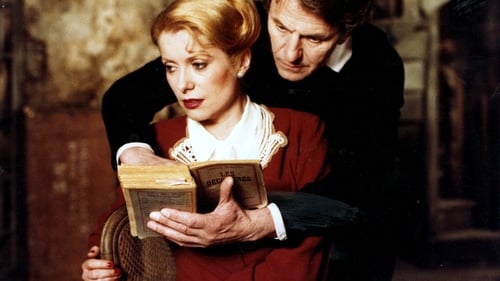
Producer
In occupied Paris, an actress married to a Jewish theater owner must keep him hidden from the Nazis while doing both of their jobs.

Screenplay
In occupied Paris, an actress married to a Jewish theater owner must keep him hidden from the Nazis while doing both of their jobs.

Director
In occupied Paris, an actress married to a Jewish theater owner must keep him hidden from the Nazis while doing both of their jobs.
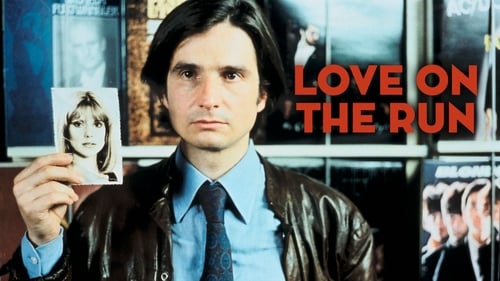
Screenplay
Antoine is now 30, working as a proofreader and getting divorced from his his wife. It being the first "no-fault" divorce in France, a media circus erupts, dredging up Antoine's past. Indecisive about his new love with a store clerk, he impulsively takes off with an old flame.

Producer
Antoine is now 30, working as a proofreader and getting divorced from his his wife. It being the first "no-fault" divorce in France, a media circus erupts, dredging up Antoine's past. Indecisive about his new love with a store clerk, he impulsively takes off with an old flame.

Director
Antoine is now 30, working as a proofreader and getting divorced from his his wife. It being the first "no-fault" divorce in France, a media circus erupts, dredging up Antoine's past. Indecisive about his new love with a store clerk, he impulsively takes off with an old flame.

Self
A documentary interview with the French actress while on the sets of films in production. Several of the directors for whom she has made films are also interviewed
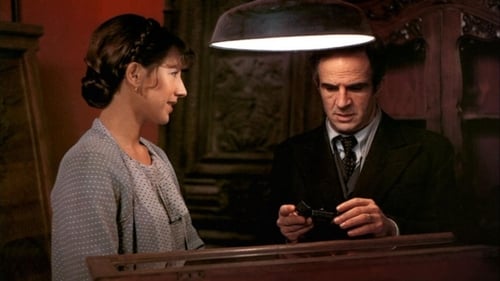
Julien Davenne
Inspired by three Henry James short stories, this is the story of a World War I veteran who works as an obituary writer at the newspaper. Worshipping his deceased wife, he is obsessed with the dead people in his life and soon intends to build a memorial to all of them.

Producer
Inspired by three Henry James short stories, this is the story of a World War I veteran who works as an obituary writer at the newspaper. Worshipping his deceased wife, he is obsessed with the dead people in his life and soon intends to build a memorial to all of them.

Screenplay
Inspired by three Henry James short stories, this is the story of a World War I veteran who works as an obituary writer at the newspaper. Worshipping his deceased wife, he is obsessed with the dead people in his life and soon intends to build a memorial to all of them.

Director
Inspired by three Henry James short stories, this is the story of a World War I veteran who works as an obituary writer at the newspaper. Worshipping his deceased wife, he is obsessed with the dead people in his life and soon intends to build a memorial to all of them.
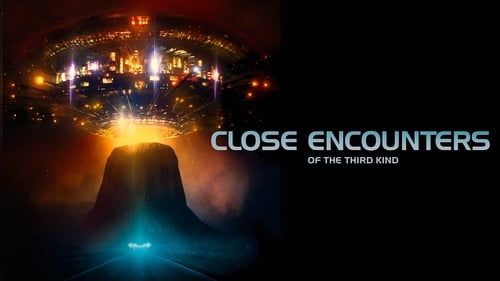
Claude Lacombe
After an encounter with UFOs, an electricity linesman feels undeniably drawn to an isolated area in the wilderness where something spectacular is about to happen.
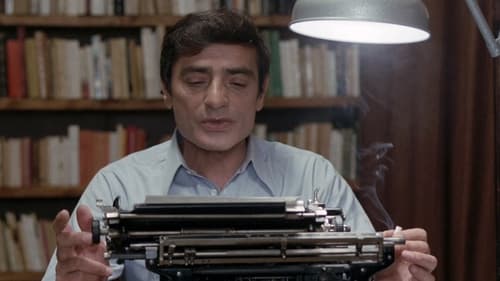
Producer
At Bertrand Morane's burial there are many of the women that the 40-year-old engineer loved. In flashback Bertrand's life and love affairs are told by himself while writing an autobiographical novel.

Un homme aux fénérailles (non crédité)
At Bertrand Morane's burial there are many of the women that the 40-year-old engineer loved. In flashback Bertrand's life and love affairs are told by himself while writing an autobiographical novel.

Screenplay
At Bertrand Morane's burial there are many of the women that the 40-year-old engineer loved. In flashback Bertrand's life and love affairs are told by himself while writing an autobiographical novel.

Director
At Bertrand Morane's burial there are many of the women that the 40-year-old engineer loved. In flashback Bertrand's life and love affairs are told by himself while writing an autobiographical novel.
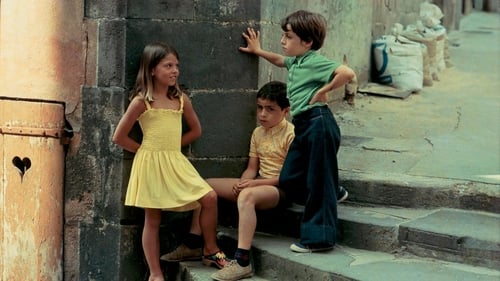
Producer
Various experiences of childhood are seen in several sequences that take place in the small town of Thiers, France. Vignettes include a boy's awakening interest in girls, couples double-dating at the movies, brothers giving their friend a haircut, a boy dealing with an abusive home life, a baby and a cat sitting by an open window, a child telling a dirty joke, and a boy who develops a crush on his friend's mother.

Martines Vater
Various experiences of childhood are seen in several sequences that take place in the small town of Thiers, France. Vignettes include a boy's awakening interest in girls, couples double-dating at the movies, brothers giving their friend a haircut, a boy dealing with an abusive home life, a baby and a cat sitting by an open window, a child telling a dirty joke, and a boy who develops a crush on his friend's mother.

Screenplay
Various experiences of childhood are seen in several sequences that take place in the small town of Thiers, France. Vignettes include a boy's awakening interest in girls, couples double-dating at the movies, brothers giving their friend a haircut, a boy dealing with an abusive home life, a baby and a cat sitting by an open window, a child telling a dirty joke, and a boy who develops a crush on his friend's mother.

Director
Various experiences of childhood are seen in several sequences that take place in the small town of Thiers, France. Vignettes include a boy's awakening interest in girls, couples double-dating at the movies, brothers giving their friend a haircut, a boy dealing with an abusive home life, a baby and a cat sitting by an open window, a child telling a dirty joke, and a boy who develops a crush on his friend's mother.

Producer
A group of educators led by Fernand Deligny are working to create contact with autistic children in a hamlet of the Cevennes.
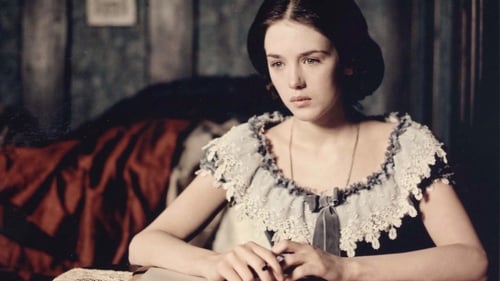
Officer (uncredited)
Adèle Hugo, daughter of renowned French writer Victor Hugo, falls in love with British soldier Albert Pinson while living in exile off the coast of England. Though he spurns her affections, she follows him to Nova Scotia and takes on the alias of Adèle Lewly. Albert continues to reject her, but she remains obsessive in her quest to win him over.

Screenplay
Adèle Hugo, daughter of renowned French writer Victor Hugo, falls in love with British soldier Albert Pinson while living in exile off the coast of England. Though he spurns her affections, she follows him to Nova Scotia and takes on the alias of Adèle Lewly. Albert continues to reject her, but she remains obsessive in her quest to win him over.

Director
Adèle Hugo, daughter of renowned French writer Victor Hugo, falls in love with British soldier Albert Pinson while living in exile off the coast of England. Though he spurns her affections, she follows him to Nova Scotia and takes on the alias of Adèle Lewly. Albert continues to reject her, but she remains obsessive in her quest to win him over.

Self
A portrait of legendary filmmaker Nicholas Ray while he is working as a film professor at a college in upstate New York.

Self
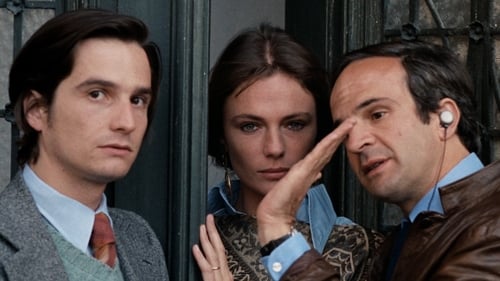
Directeur Ferrand
A committed film director struggles to complete his movie while coping with a myriad of crises, personal and professional, among the cast and crew.

Screenplay
A committed film director struggles to complete his movie while coping with a myriad of crises, personal and professional, among the cast and crew.

Director
A committed film director struggles to complete his movie while coping with a myriad of crises, personal and professional, among the cast and crew.
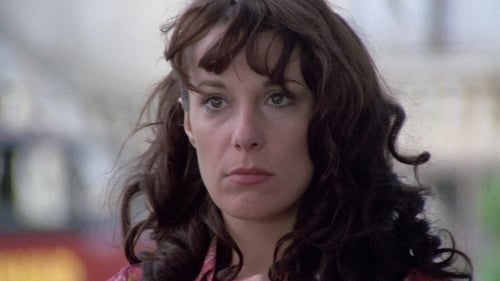
Writer
Stanislas Previne is a young sociologist, preparing a thesis on criminal women. He chooses Camille Bliss as his subject of study and begins to visit her in prison for interviews. Camille became acquainted with trouble at a young age and justifies her actions by "fate-bets." She is currently in prison for allegedly murdering one of her lovers. As she tells Stanislas of her life and love affairs, his interest in her grows to more than just professional. Can he resist her charm?

Director
Stanislas Previne is a young sociologist, preparing a thesis on criminal women. He chooses Camille Bliss as his subject of study and begins to visit her in prison for interviews. Camille became acquainted with trouble at a young age and justifies her actions by "fate-bets." She is currently in prison for allegedly murdering one of her lovers. As she tells Stanislas of her life and love affairs, his interest in her grows to more than just professional. Can he resist her charm?
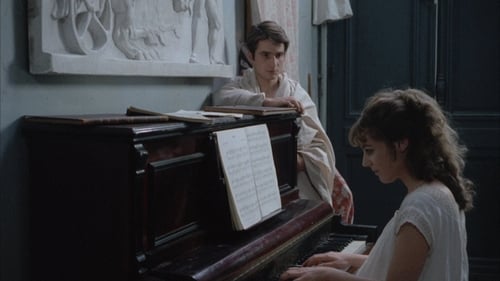
Narrator (voice) (uncredited)
At the beginning of the 20th century, Claude Roc, a young middle-class Frenchman meets in Paris Ann Brown, a young Englishwoman. They become friends and Ann invites him to spend holidays at the house where she lives with her mother and her sister Muriel, for whom she intends Claude. During these holidays, Claude, Ann and Muriel become very close and he gradually falls in love with Muriel. But both families lay down a one-year-long separation without any contact before agreeing to the marriage. So Claude goes back to Paris when he has many love affairs before sending Muriel a break-off letter...

Adaptation
At the beginning of the 20th century, Claude Roc, a young middle-class Frenchman meets in Paris Ann Brown, a young Englishwoman. They become friends and Ann invites him to spend holidays at the house where she lives with her mother and her sister Muriel, for whom she intends Claude. During these holidays, Claude, Ann and Muriel become very close and he gradually falls in love with Muriel. But both families lay down a one-year-long separation without any contact before agreeing to the marriage. So Claude goes back to Paris when he has many love affairs before sending Muriel a break-off letter...

Director
At the beginning of the 20th century, Claude Roc, a young middle-class Frenchman meets in Paris Ann Brown, a young Englishwoman. They become friends and Ann invites him to spend holidays at the house where she lives with her mother and her sister Muriel, for whom she intends Claude. During these holidays, Claude, Ann and Muriel become very close and he gradually falls in love with Muriel. But both families lay down a one-year-long separation without any contact before agreeing to the marriage. So Claude goes back to Paris when he has many love affairs before sending Muriel a break-off letter...

Self
Documentary portrait of Henri Langlois, co-founder of the Cinémathèque Française.
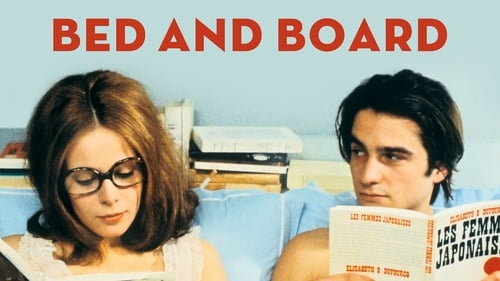
Screenplay
Parisian everyman Antoine Doinel has married his sweetheart Christine Darbon, and the newlyweds have set up a cozy domestic life of selling flowers and giving violin lessons while Antoine fitfully works on his long-gestating novel. As Christine becomes pregnant with the couple's first child, Antoine finds himself enraptured with a young Japanese beauty. The complications change the course of their relationship forever.

Dialogue
Parisian everyman Antoine Doinel has married his sweetheart Christine Darbon, and the newlyweds have set up a cozy domestic life of selling flowers and giving violin lessons while Antoine fitfully works on his long-gestating novel. As Christine becomes pregnant with the couple's first child, Antoine finds himself enraptured with a young Japanese beauty. The complications change the course of their relationship forever.

Le Marchand de Journaux (voice) (uncredited)
Parisian everyman Antoine Doinel has married his sweetheart Christine Darbon, and the newlyweds have set up a cozy domestic life of selling flowers and giving violin lessons while Antoine fitfully works on his long-gestating novel. As Christine becomes pregnant with the couple's first child, Antoine finds himself enraptured with a young Japanese beauty. The complications change the course of their relationship forever.

Producer
Parisian everyman Antoine Doinel has married his sweetheart Christine Darbon, and the newlyweds have set up a cozy domestic life of selling flowers and giving violin lessons while Antoine fitfully works on his long-gestating novel. As Christine becomes pregnant with the couple's first child, Antoine finds himself enraptured with a young Japanese beauty. The complications change the course of their relationship forever.

Director
Parisian everyman Antoine Doinel has married his sweetheart Christine Darbon, and the newlyweds have set up a cozy domestic life of selling flowers and giving violin lessons while Antoine fitfully works on his long-gestating novel. As Christine becomes pregnant with the couple's first child, Antoine finds himself enraptured with a young Japanese beauty. The complications change the course of their relationship forever.
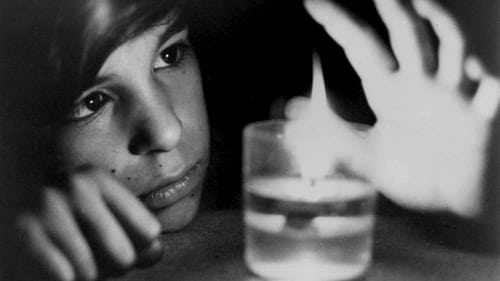
Dialogue
In 1798, a feral boy is discovered outside the town of Aveyron, France. Diagnosed as mentally impaired, he is relegated to an asylum. A young doctor named Jean Itard becomes convinced that the boy has normal mental capacity, but that his development was hindered by lack of contact with society. He brings the boy home and begins an arduous attempt at education over several years.

Adaptation
In 1798, a feral boy is discovered outside the town of Aveyron, France. Diagnosed as mentally impaired, he is relegated to an asylum. A young doctor named Jean Itard becomes convinced that the boy has normal mental capacity, but that his development was hindered by lack of contact with society. He brings the boy home and begins an arduous attempt at education over several years.

Screenplay
In 1798, a feral boy is discovered outside the town of Aveyron, France. Diagnosed as mentally impaired, he is relegated to an asylum. A young doctor named Jean Itard becomes convinced that the boy has normal mental capacity, but that his development was hindered by lack of contact with society. He brings the boy home and begins an arduous attempt at education over several years.

Director
In 1798, a feral boy is discovered outside the town of Aveyron, France. Diagnosed as mentally impaired, he is relegated to an asylum. A young doctor named Jean Itard becomes convinced that the boy has normal mental capacity, but that his development was hindered by lack of contact with society. He brings the boy home and begins an arduous attempt at education over several years.

Le Dr Jean Itard
In 1798, a feral boy is discovered outside the town of Aveyron, France. Diagnosed as mentally impaired, he is relegated to an asylum. A young doctor named Jean Itard becomes convinced that the boy has normal mental capacity, but that his development was hindered by lack of contact with society. He brings the boy home and begins an arduous attempt at education over several years.

Self
Episode of the French television series about the work of François Truffaut.
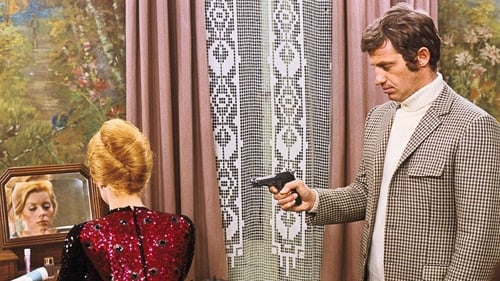
Adaptation
A man orders a mail-order bride but receives instead a con woman.

Producer
A man orders a mail-order bride but receives instead a con woman.

Director
A man orders a mail-order bride but receives instead a con woman.
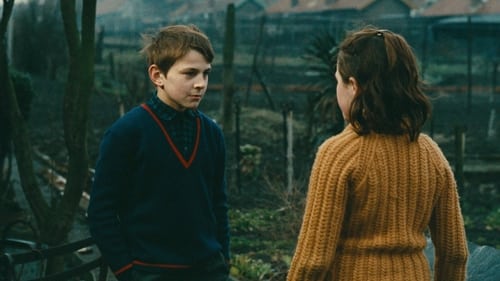
Producer
Handed over to foster care by his mother—who's unwilling to give up permanent custody—the now-adolescent François understands that nothing in life is permanent, and his increasingly erratic actions reflect this knowledge.
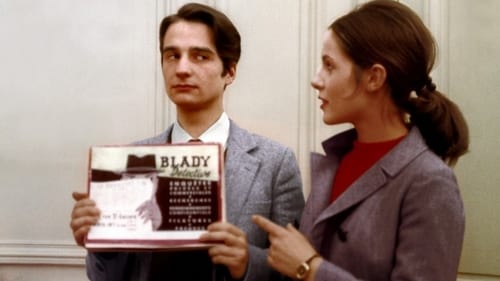
Screenplay
The third in a series of films featuring François Truffaut's alter-ego, Antoine Doinel, the story resumes with Antoine being discharged from military service. His sweetheart Christine's father lands Antoine a job as a security guard, which he promptly loses. Stumbling into a position assisting a private detective, Antoine falls for his employers' seductive wife, Fabienne, and finds that he must choose between the older woman and Christine.

Dialogue
The third in a series of films featuring François Truffaut's alter-ego, Antoine Doinel, the story resumes with Antoine being discharged from military service. His sweetheart Christine's father lands Antoine a job as a security guard, which he promptly loses. Stumbling into a position assisting a private detective, Antoine falls for his employers' seductive wife, Fabienne, and finds that he must choose between the older woman and Christine.

Producer
The third in a series of films featuring François Truffaut's alter-ego, Antoine Doinel, the story resumes with Antoine being discharged from military service. His sweetheart Christine's father lands Antoine a job as a security guard, which he promptly loses. Stumbling into a position assisting a private detective, Antoine falls for his employers' seductive wife, Fabienne, and finds that he must choose between the older woman and Christine.

Director
The third in a series of films featuring François Truffaut's alter-ego, Antoine Doinel, the story resumes with Antoine being discharged from military service. His sweetheart Christine's father lands Antoine a job as a security guard, which he promptly loses. Stumbling into a position assisting a private detective, Antoine falls for his employers' seductive wife, Fabienne, and finds that he must choose between the older woman and Christine.
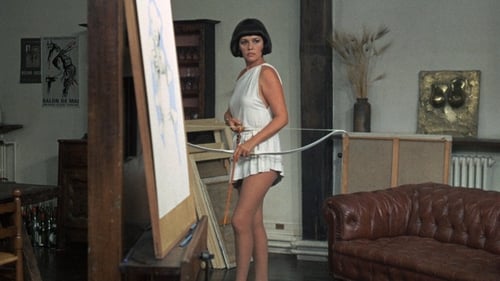
Adaptation
Julie Kohler is prevented from suicide by her mother. She leaves the town. She will track down, charm and kill five men who do not know her. What is her goal? What is her purpose?

Director
Julie Kohler is prevented from suicide by her mother. She leaves the town. She will track down, charm and kill five men who do not know her. What is her goal? What is her purpose?

Self
An interview with François Truffaut on the cinema of Jean Vigo.

Self
Documentary about the making of Marcel Carne's 1945 film Children of Paradise (France), interviewing the director, the actors and production designer, as well as other French directors.

Self
At the world premiere of "Gertrud" in Paris, December 1964, Dreyer is greeted by many celebrities of the French cinema: Clouzot, Langlois, Truffaut, Godard, Anna Karina. Afterwards Dreyer delivers short comments on the style of each of his films.
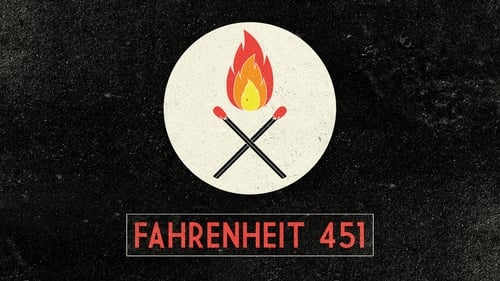
Screenplay
In the future, the government maintains control of public opinion by outlawing literature and maintaining a group of enforcers, known as “firemen,” to perform the necessary book burnings. Fireman Montag begins to question the morality of his vocation…

Director
In the future, the government maintains control of public opinion by outlawing literature and maintaining a group of enforcers, known as “firemen,” to perform the necessary book burnings. Fireman Montag begins to question the morality of his vocation…

Self

Self
Made for Cinéastes de notre temps series. In 1964, several French New Wave auteurs discuss the success and crisis of the wave. Featuring Claude Chabrol, François Truffaut, Jacques Rivette, Jean-Luc Godard, Jacques Rozier, Jacques Demy, Agnès Varda, Jean Rouch, and many others.

Screenplay
Pierre Lachenay is a well-known publisher and lecturer, married with Franca and father of Sabine, around 10. He meets an air hostess, Nicole. They start a love affair, which Pierre is hiding, but he cannot stand staying away from her.

Le Pompiste (voice) (uncredited)
Pierre Lachenay is a well-known publisher and lecturer, married with Franca and father of Sabine, around 10. He meets an air hostess, Nicole. They start a love affair, which Pierre is hiding, but he cannot stand staying away from her.

Producer
Pierre Lachenay is a well-known publisher and lecturer, married with Franca and father of Sabine, around 10. He meets an air hostess, Nicole. They start a love affair, which Pierre is hiding, but he cannot stand staying away from her.

Director
Pierre Lachenay is a well-known publisher and lecturer, married with Franca and father of Sabine, around 10. He meets an air hostess, Nicole. They start a love affair, which Pierre is hiding, but he cannot stand staying away from her.
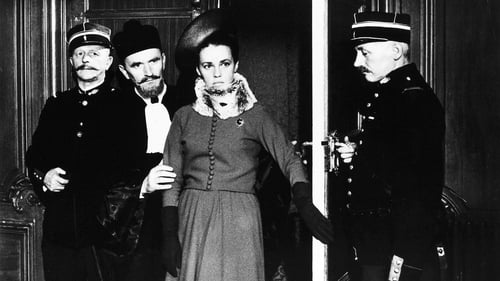
Screenplay
This French version of the notorious spy's life centers less on her romantic escapades, and more on those that reveal the person she actually was during WW I when her German superiors ordered her to seduce the French captain Trintignant so she can steal classified papers from him. Instead she falls in love with him, blows the cover, and ends up convicted of espionage and shot. (AllMovie)

Self (uncredited)
A man struggles with his identity, his life choices, his interracial relationship, and his latent homosexuality. A portrait of some young intellectuals in early sixties Montreal.

Director
In 1962, François Truffaut visited the Mar del Plata Film Festival to present his competition in the brand-new Jules and Jim. At that stage of the Festival, from 1954 to 1970, names that today sound mythical were common figures among the guests. Truffaut, along with his colleagues from the Cahiers du Cinéma, would take French films by storm with Les 400 Coups (1959) and the Nouvelle Vague would become a key movement in the history of cinema. A few years after his debut and accompanied by the success of Jules and Jim, Truffaut was already well on his way to becoming a legend. In his visit to the Festival, in 16 mm titled Los 4 Golpes (this, in Castilian), even exhibiting in that look a playful look on his work. This short film, for different reasons, was rarely shown and remains a rarity in the director's film.

El Asasino (The Assassin)
In 1962, François Truffaut visited the Mar del Plata Film Festival to present his competition in the brand-new Jules and Jim. At that stage of the Festival, from 1954 to 1970, names that today sound mythical were common figures among the guests. Truffaut, along with his colleagues from the Cahiers du Cinéma, would take French films by storm with Les 400 Coups (1959) and the Nouvelle Vague would become a key movement in the history of cinema. A few years after his debut and accompanied by the success of Jules and Jim, Truffaut was already well on his way to becoming a legend. In his visit to the Festival, in 16 mm titled Los 4 Golpes (this, in Castilian), even exhibiting in that look a playful look on his work. This short film, for different reasons, was rarely shown and remains a rarity in the director's film.
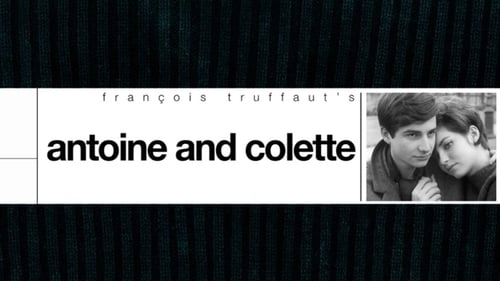
Writer
Now aged 17, Antoine Doinel works in a factory which makes records. At a music concert, he meets a girl his own age, Colette, and falls in love with her. Later, Antoine goes to extraordinary lengths to please his new girlfriend and her parents, but Colette still only regards him as a casual friend. First segment of “Love at Twenty” (1962).
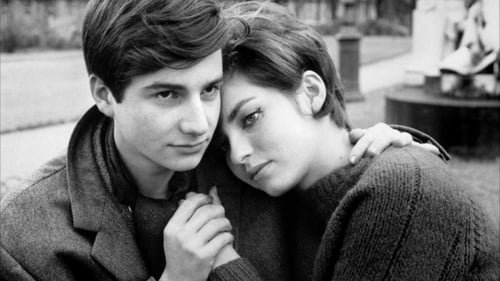
Writer
Love at Twenty unites five directors from five different countries to present their different perspectives on what love really is at the age of 20. The episodes are united with the score of Georges Delerue and still photos of Henri Cartier-Bresson.

Director
Love at Twenty unites five directors from five different countries to present their different perspectives on what love really is at the age of 20. The episodes are united with the score of Georges Delerue and still photos of Henri Cartier-Bresson.

Director
Now aged 17, Antoine Doinel works in a factory which makes records. At a music concert, he meets a girl his own age, Colette, and falls in love with her. Later, Antoine goes to extraordinary lengths to please his new girlfriend and her parents, but Colette still only regards him as a casual friend. First segment of “Love at Twenty” (1962).

Writer
A man inherits an old house in a very bad condition. With the help of a young mechanic, he begins to renovate this house.
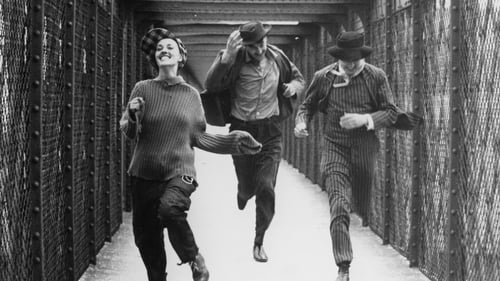
Adaptation
In the carefree days before World War I, introverted Austrian author Jules strikes up a friendship with the exuberant Frenchman Jim and both men fall for the impulsive and beautiful Catherine.

Producer
In the carefree days before World War I, introverted Austrian author Jules strikes up a friendship with the exuberant Frenchman Jim and both men fall for the impulsive and beautiful Catherine.

Director
In the carefree days before World War I, introverted Austrian author Jules strikes up a friendship with the exuberant Frenchman Jim and both men fall for the impulsive and beautiful Catherine.

Producer
Originally commissioned by Truffaut as part of a series of short films based on Edgar Allen Poe's Tales of the Grotesque and Arabesque, it would be a way for New Wave directors to sponsor younger directors. This was the only film in the series completed.
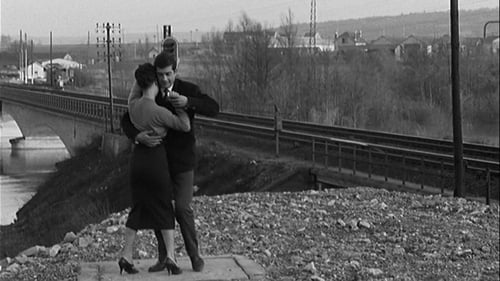
Director
Godard narrates the loosely constructed story of a young woman attempting to make her way from her home in the country to Paris, amid a massive flood.

Writer
Godard narrates the loosely constructed story of a young woman attempting to make her way from her home in the country to Paris, amid a massive flood.

Self
The French director is interviewed in this documentary showing the newly celebrated filmmaker discussing his influences and beginnings along with "Les Mistons" and "The 400 Blows".
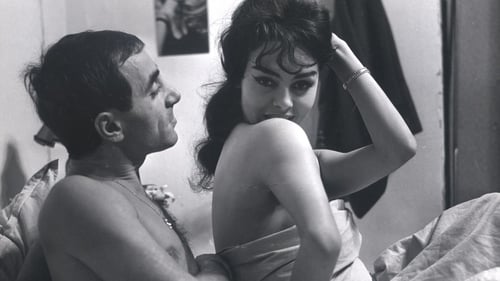
Dialogue
Charlie is a former classical pianist who has changed his name and now plays jazz in a grimy Paris bar. When Charlie's brothers, Richard and Chico, surface and ask for Charlie's help while on the run from gangsters they have scammed, he aids their escape. Soon Charlie and Lena, a waitress at the same bar, face trouble when the gangsters arrive, looking for his brothers.

Adaptation
Charlie is a former classical pianist who has changed his name and now plays jazz in a grimy Paris bar. When Charlie's brothers, Richard and Chico, surface and ask for Charlie's help while on the run from gangsters they have scammed, he aids their escape. Soon Charlie and Lena, a waitress at the same bar, face trouble when the gangsters arrive, looking for his brothers.

Co-Director
Jean Lerat begins his military service at an army camp. Despite his aunt’s attempts to pull a few strings to his advantage, the unfortunate Lerat manages to get on the wrong side of his bullying colonel…

Le taulard passionné de lecture
Jean Lerat begins his military service at an army camp. Despite his aunt’s attempts to pull a few strings to his advantage, the unfortunate Lerat manages to get on the wrong side of his bullying colonel…

Producer
Jean Lerat begins his military service at an army camp. Despite his aunt’s attempts to pull a few strings to his advantage, the unfortunate Lerat manages to get on the wrong side of his bullying colonel…

Adaptation
Jean Lerat begins his military service at an army camp. Despite his aunt’s attempts to pull a few strings to his advantage, the unfortunate Lerat manages to get on the wrong side of his bullying colonel…

Director
Charlie is a former classical pianist who has changed his name and now plays jazz in a grimy Paris bar. When Charlie's brothers, Richard and Chico, surface and ask for Charlie's help while on the run from gangsters they have scammed, he aids their escape. Soon Charlie and Lena, a waitress at the same bar, face trouble when the gangsters arrive, looking for his brothers.
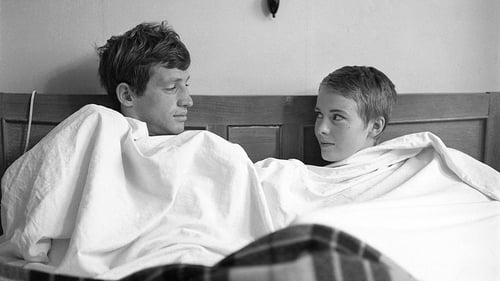
Original Story
A small-time thief steals a car and impulsively murders a motorcycle policeman. Wanted by the authorities, he attempts to persuade a girl to run away to Italy with him.
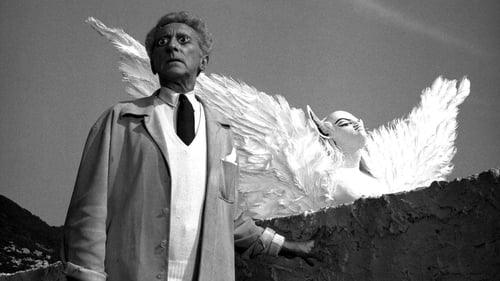
Associate Producer
Outside time and reality, the experiences of a poet. The judgement of the young poet by Heurtebise and the Princess, the Gypsies, the palace of Pallas Athena, the spear of the Goddess which pierces the poet's heart, the temptation of the Sphinx, the flight of Oedipus and the final Assumption. This film is the third part of Cocteau's Orphic Trilogy, which consists of The Blood of a Poet (1930), Orpheus (1950) and Testament of Orpheus (1960).
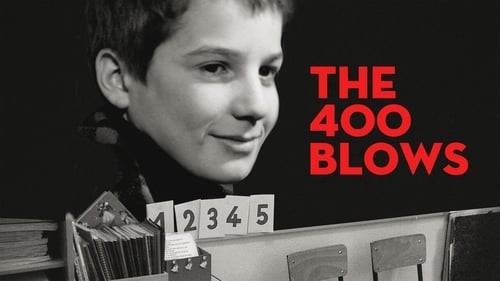
Adaptation
For young Parisian boy Antoine Doinel, life is one difficult situation after another. Surrounded by inconsiderate adults, including his neglectful parents, Antoine spends his days with his best friend, Rene, trying to plan for a better life. When one of their schemes goes awry, Antoine ends up in trouble with the law, leading to even more conflicts with unsympathetic authority figures.

Screenplay
For young Parisian boy Antoine Doinel, life is one difficult situation after another. Surrounded by inconsiderate adults, including his neglectful parents, Antoine spends his days with his best friend, Rene, trying to plan for a better life. When one of their schemes goes awry, Antoine ends up in trouble with the law, leading to even more conflicts with unsympathetic authority figures.

Man in Funfair
For young Parisian boy Antoine Doinel, life is one difficult situation after another. Surrounded by inconsiderate adults, including his neglectful parents, Antoine spends his days with his best friend, Rene, trying to plan for a better life. When one of their schemes goes awry, Antoine ends up in trouble with the law, leading to even more conflicts with unsympathetic authority figures.

Producer
For young Parisian boy Antoine Doinel, life is one difficult situation after another. Surrounded by inconsiderate adults, including his neglectful parents, Antoine spends his days with his best friend, Rene, trying to plan for a better life. When one of their schemes goes awry, Antoine ends up in trouble with the law, leading to even more conflicts with unsympathetic authority figures.

Director
For young Parisian boy Antoine Doinel, life is one difficult situation after another. Surrounded by inconsiderate adults, including his neglectful parents, Antoine spends his days with his best friend, Rene, trying to plan for a better life. When one of their schemes goes awry, Antoine ends up in trouble with the law, leading to even more conflicts with unsympathetic authority figures.

Producer
An experimental movie based on a poem of the French writer and director Jean Cocteau about a servant who fantasises about killing the lady of the house.

Writer
A young woman wins a typing contest and sets off to work in Paris.
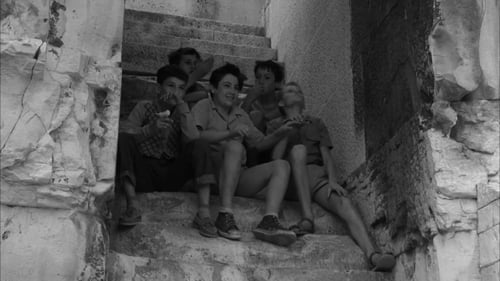
Screenplay
A group of young boys have a collective crush on Bernadette. As a result of this, they have an unreasoning jealousy of Gérard, and do everything they can to disrupt their relationship. When Gérard catches one of the young boys spying on them, he thrashes him severely. In retaliation, the children try to inspire Bernadette to doubt Gérard’s love.

Director
A group of young boys have a collective crush on Bernadette. As a result of this, they have an unreasoning jealousy of Gérard, and do everything they can to disrupt their relationship. When Gérard catches one of the young boys spying on them, he thrashes him severely. In retaliation, the children try to inspire Bernadette to doubt Gérard’s love.
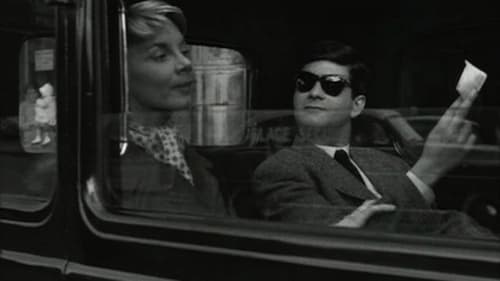
Party guest (uncredited)
Claire (Vitry) is a chic young Parisian woman married to a somewhat older husband, Jean (Doniol-Valcroze). As the story opens, she leaves her husband playing baroque music at the piano, telling him she is off to see her sister, Solange. In reality she meets her lover, Claude (Brialy) at his apartment; after some idle chatter and love-making he tells her a story of the shriveled heads that the Jivaro Indians used to give their lovers as tokens of affection but, as she shivers in disgust, he gives her a mink instead. How will they hide it from her husband though?
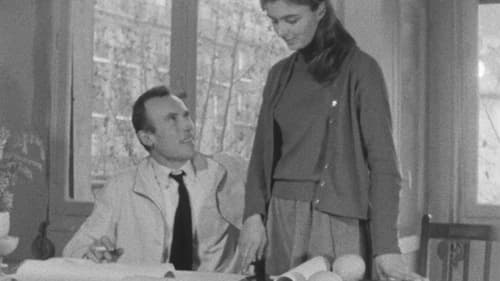
Cameo (uncredited)
Some time after marrying a sensual girl, Pozdnychev realizes the only link to his spouse is that of physical love. When a violinist with whom his wife plays regularly the “Sonata to Kreutzer” appears, the young woman blooms in a new passion. From then on, her husband is eaten away by jealousy.

Director
A timid and clumsy young man is looking for a room through newspaper ads. A young lady answers his phone call. When he arrives to the apartment with his suitcase, he finds the young lady in the company of a baby girl entrusted to her by her brother. Soon, another young man arrives wearing trendy sunglasses and with a bold behavior which contrasts with the shy demeanor of the first one. They each try to entice the young lady. One maneuver tried by the bold guy is the cigarette/steam locomotive trick later to be seen in Jules et Jim. The shy young man tries his luck again, but finally they both give up. Together they leave the apartment and the young lady who is shown both relieved and disappointed. This short film was disowned by Truffaut, but it can be considered a prelude to the "love trio" theme found in several later films by Truffaut.
